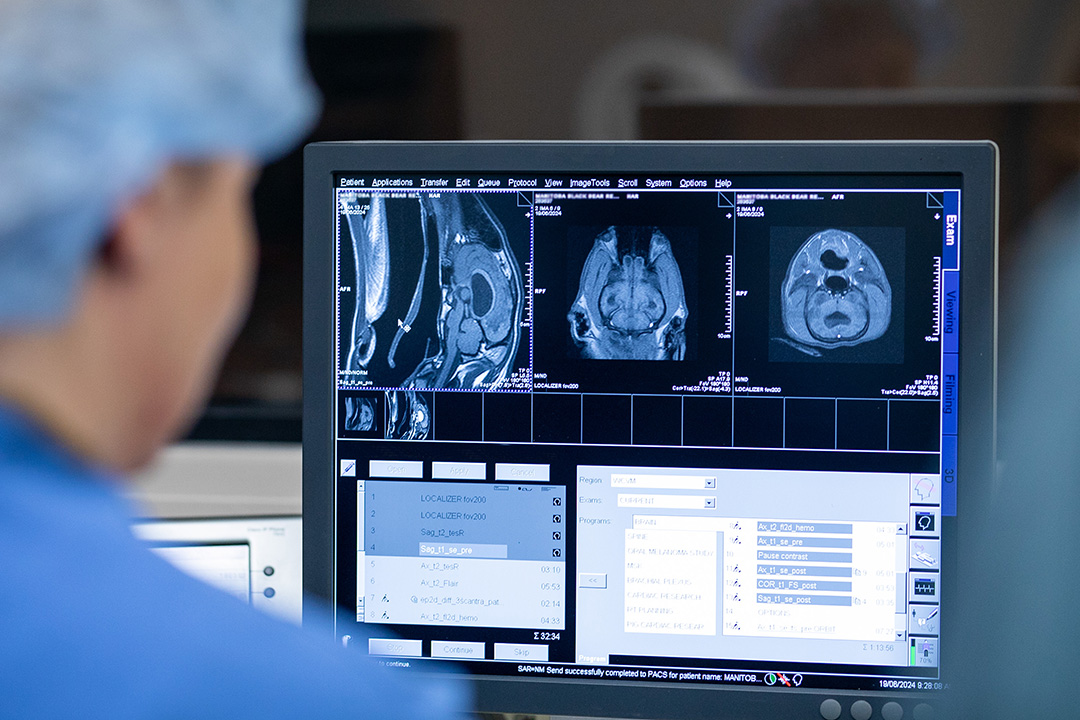
MRI and LINAC installation project begins March 2025
While the WCVM Veterinary Medical Centre (VMC) has been planning a construction project that will significantly enhance its technological resources, the hospital's leadership team has secured an alternative provider for magnetic resonance imaging (MRI) diagnostic services.
The VMC is installing a new magnetic resonance imaging (MRI) unit as well as a new linear accelerator — two key technologies that are in high demand for referral patients. This project includes extensive renovations to the hospital’s diagnostic and treatment suites, followed by installation of the new technologies.
This major initiative, which will be completed by August 2025, will cost $9 million — much of which will be covered through generous gifts from WCVM donors.
MRI machine. The VMC permanently shut down its existing MRI unit in October 2024 due to the machine's age. As part of the major construction project, the VMC is installing a new 3 Tesla (3T) MRI unit that is capable of producing highly detailed images and delivering a variety of diagnostic capabilities.
In the interim, the hospital's leadership team has established a specific service agreement with an alternative MRI service provider in Saskatoon, Sask. This temporary arrangement ensures that VMC clinical team members have timely access to MRI services for patients at a cost that is significantly lower in comparison to other service providers in Western Canada. The VMC resumed scheduling of MRI scans for patients in mid-November.
Linear accelerator. The VMC permanently shut down its existing linear accelerator in 2022 because of substantial mechanical issues. While WCVM oncologists can still provide consults about radiation as a treatment option, any patients requiring radiation are being referred to other veterinary centres.
Once the VMC's new linear accelerator is in place, the veterinary oncology team will resume offering a full range of radiation therapies — including optimized image-guided radiotherapy and high-speed radiation treatment.
Since it will take several months for all the project’s specialized equipment to arrive in Saskatoon, actual construction will not begin until March 1, 2025. The project’s general contractor is co-ordinating the installation of both technologies to minimize cost, resources, clinical service disruptions and the impact to students’ clinical experiences.
The VMC leadership team will provide regular project updates to Western Canada’s veterinary community over the coming months. Please email vmc.admin@usask.ca if you have any questions or concerns.

